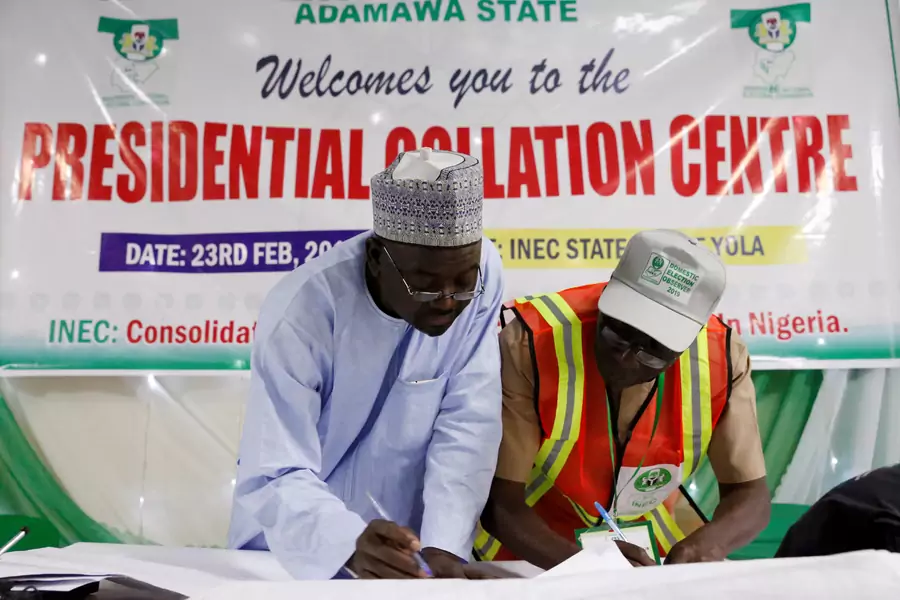Beware of Early Announcements for Nigeria's Election

The two leading candidates in Nigeria’s presidential election, which took place this past Saturday, were incumbent President Muhammadu Buhari and former Vice President Atiku Abubakar. Everybody wants to know who won, and right away. The chairman of the Independent National Electoral Commission (INEC) has said that the results of the national elections will start to be announced on February 25. It is anticipated that foreign election observers will this week issue “preliminary reports” evaluating the quality of the elections. On the basis of slight returns, some observers are already speculating that the victory is Buhari’s.
Speculation is what such predictions are; it is simply too early to tell. In a country with a poorly developed infrastructure and 120,000 polling locations, counting ballots and collating the results is a major task. On February 24, there was a delay in the counting for some hours, apparently because of technical difficulties. The number of voters is currently unknown. Over eighty million people registered to vote and seventy-two million picked up their voting cards, which are necessary to actually cast a ballot. But a voter card does not necessarily mean a voter; in 2015, voter turnout was less than fifty percent. In addition INEC has said that the elections had to be postponed in certain districts across three states because of alleged voter intimidation. Even when INEC declares a winner, the process will hardly be completed. The loser is bound to contest the results in the courts, and there were so many irregularities in the balloting process that there will be grounds for either candidate to do so.
More on:
In 2015, the losing candidate, then-incumbent President Goodluck Jonathan, conceded and congratulated the victor, President Buhari. But neither candidate this time around can be expected to do so. Indeed, both campaigns have assured their supporters of their inevitable victory, and said that should INEC find for their rival, that will be clear evidence that the vote was rigged. The electoral process has challenges ahead and is far from over. In terms of evaluating the 2019 elections, the views of foreign election observers will be less important that whether the Nigerian observers and Nigerians in general see the process as credible.
More on:
 Online Store
Online Store